Related Research Articles

Vernon is a town in Windham County,Vermont,in the United States. The population was 2,192 at the 2020 census. Vernon is the site of the now-defunct Vermont Yankee,the state of Vermont's only nuclear power plant,which closed in December 2014.

Jonathan Hunt was an American lawyer and politician from Vermont. He was a member of the United States House of Representatives for the state of Vermont and was a member of the prominent Hunt family of Vermont.

Jonathan Hunt was an American pioneer,landowner and politician from Vernon,Vermont. He served as second lieutenant governor of Vermont and was a member of the prominent Hunt family of Vermont.
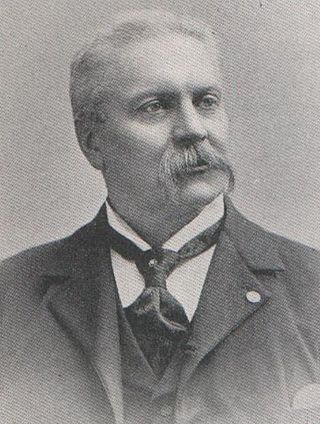
Kittredge Haskins was a Vermont lawyer and Republican politician. A Union Army veteran of the American Civil War,he served in the United States House of Representatives from 1901 to 1909.

Levi K. Fuller was an American businessman,military officer,and politician. A Republican,he served in the Vermont Senate from 1880 to 1882,as lieutenant governor from 1886 to 1888,and the 44th governor of Vermont from 1892 to 1894.

Broughton Harris was a Vermont businessman and political figure. He was Secretary and Treasurer of Utah Territory,and became one of the Runaway Officials of 1851.

Charles Henry Robb was an American lawyer from Vermont and Washington,DC. He was most notable for his service as an Associate Justice of the United States Court of Appeals for the District of Columbia.

Hoyt Henry Wheeler was an associate justice of the Vermont Supreme Court and later a United States district judge of the United States District Court for the District of Vermont.
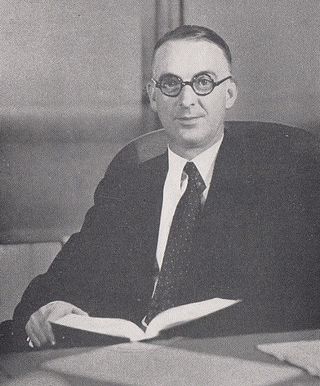
Harrie Brigham Chase was an American lawyer and judge. He served briefly on the Supreme Court of Vermont,and then was a United States circuit judge of the United States Court of Appeals for the Second Circuit.
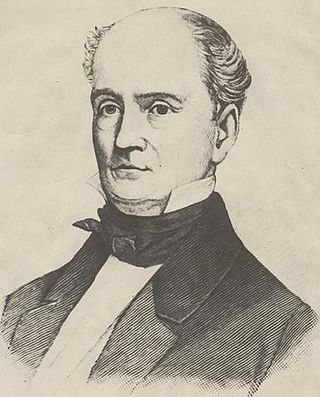
Daniel Kellogg was an American public official who served as a justice of the Vermont Supreme Court and in several other positions.

George Bradley Kellogg was a Vermont military and political figure who served as Adjutant General of the Vermont Militia and a Lieutenant Colonel in the 1st Vermont Cavalry during the American Civil War.
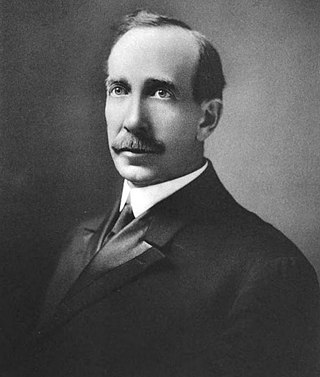
Frank Leslie Fish was a Vermont attorney and judge. He was most notable for his service as an associate justice of the Vermont Supreme Court from 1926 to 1927.
John C. Thompson was a Vermont lawyer,politician,and judge who served as a justice of the Vermont Supreme Court from 1830 until his death.
Samuel Knight was a legal and political figure in Vermont during its period as an independent republic and the early years of its statehood. Among the offices in which he served were Associate Justice of the Vermont Supreme Court,and Chief Justice (1791-1793).
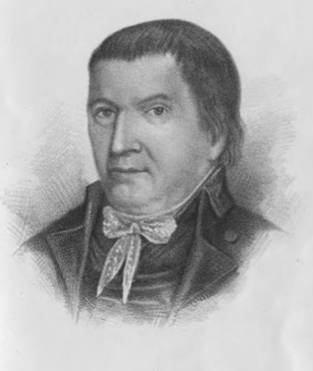
Luke Knowlton was a political leader of colonial Vermont,the Vermont Republic,and the state of Vermont. He served as a justice of the Vermont Supreme Court,a member of the Governor's Council,and a member of the Vermont House of Representatives.
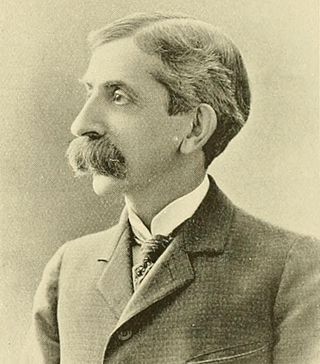
Henry Francis Field was a Vermont banker and political figure who served as Vermont State Treasurer for eight years in the late 1800s.
Micah Townsend was an attorney and political leader in Revolutionary War-era Vermont. The offices he served in included Secretary of State of Vermont.

Eleazer Lee Waterman was a Vermont attorney,politician and judge. He was most notable for his service as a judge of the Vermont Superior Court (1906-1919) and as the court's chief judge (1917-1919).
Charles Chapin was a physician and public official from Brattleboro,Vermont. Among the offices in which he served were member of the Vermont House of Representatives (1833-1834) and United States Marshal for the District of Vermont (1853–1857).

Charles N. Davenport was an American attorney,businessman,and political candidate from Vermont. A Democrat during the American Civil War and post-war era when Republicans won every election for statewide office,Davenport was an unsuccessful candidate for offices including governor and U.S. representative. He was a delegate to many local,state,and county Democratic conventions,and was the founder of the Brattleboro Reformer newspaper.